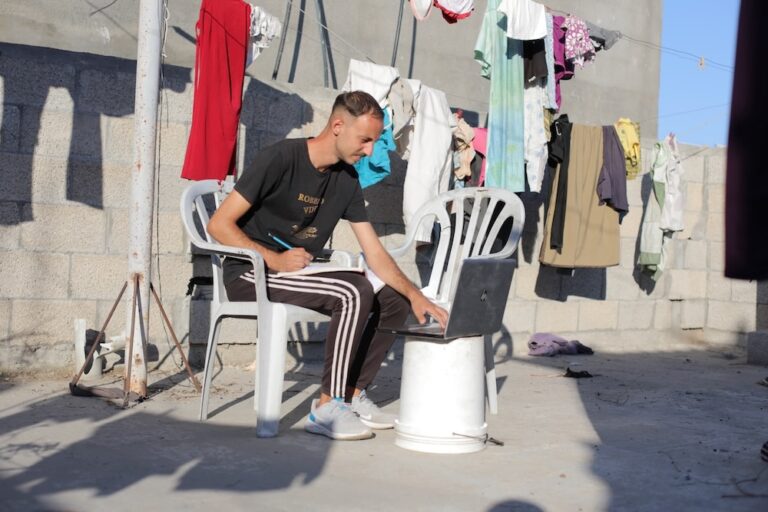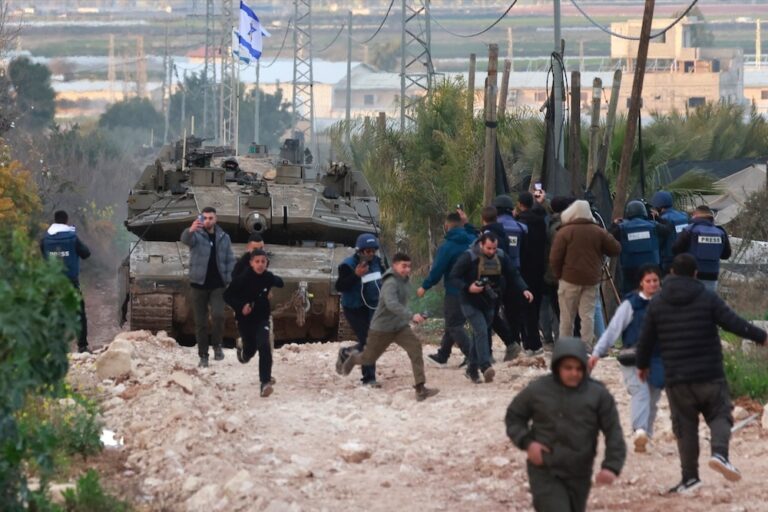There have been widespread allegations of human rights violations and disappearances during the pro-democracy protests, and many journalists, human rights defenders, bloggers and cyber activists have been detained in a number of countries, including in Egypt, Bahrain, Yemen and Syria.
(ARTICLE 19/IFEX) – April 27, 2011 – From Morocco to Bahrain, everyday people have taken on the cast iron hold of dictatorships and absolute monarchies resulting in an extraordinary collective awakening that has paved the way for epochal change in the region. The youth movement, which lies at the core of the uprisings, continues to play a prominent role in the pro-democracy and pro-reform demonstrations, which have swept through the region, unabated by government clampdowns or concessions.
To date, there have been revolutions in Tunisia and Egypt, a civil war in Libya, major protests in Algeria, Bahrain, Djibouti, Iraq, Jordan, Syria, Oman, Iran and Yemen and minor protests in Kuwait, Lebanon, Mauritania, Morocco, Saudi Arabia, Sudan and Western Sahara. The protests have also triggered similar unrest outside the region, including in Azerbaijan. Fuelled by unemployment, restrictions on freedom of expression and government corruption, the protests proved to be the ultimate litmus test for government’s tolerance of freedom of assembly and freedom of expression, across the Middle East and North Africa.
The response from a number of governments has included indiscriminately firing on protesters – resulting in at least a thousand deaths and thousands of wounded – shutting down the internet and phone lines, the jamming of Al-Jazeera’s satellite and other international broadcasters, and further clamping down on press freedom whilst also offering concessions in some cases. A clear example of this dichotomy is currently unravelling in Syria, where the entire Syrian cabinet resigned as a concession to protesters on March 29 2011 but where security forces killed at least 25 pro-democracy protesters in Homs on April 17 2011.
The determination of the protesters across the region to keep the movement “peaceful,” and their success at doing so despite significant state violence has been commended by the international community. These men, women and children who have taken to the streets are part of an unprecedented movement that has built sufficient momentum over the past months to influence the current scope of events. How we, the international community, respond to this movement and support the transition process in post-revolutionary countries such as Tunisia and Egypt, will come to define our work in the region for years to come.
ARTICLE 19 urges Arab states to grasp this opportunity to begin a process of real democratisation, with the respect of freedom of expression at its core. The transition and reform processes require, and should be based on, freedom of expression and freedom of the press, transparency, and the ability of all, men and women, religious and other minorities and vulnerable groups, to speak out and participate equally and without fear in the reform process and the democratic running of their country. The stability of the region relies on such stewardship.
ARTICLE 19 is also calling on Arab governments to hold an independent and transparent investigation into the violations that have taken place over the last months, determine all responsibilities, including the line of command, and bring to justice those responsible. The right to know is a fundamental human right which takes on particular importance in situations, such as those in the Arab world, where people are disappeared, imprisoned, beaten and tortured, or worse still, killed in mysterious circumstances and secrecy.
Social Media, Grass Root Activism and the Arab Uprisings
As one Egyptian activist succinctly tweeted during the protests there, “we use Facebook to schedule the protests, Twitter to coordinate, and YouTube to tell the world.” Today, more than ever, access to electronic media, the ability to spread ideas online and the cyber activism that this enables have emerged as essential elements to popular movements for greater freedom and, perhaps more surprisingly, even essential to 21st Century revolutions. This is the human rights revelation of the extraordinary cascade of revolutions which are springing up across the region.
In Tunisia, grassroots and independent digital activists such as Nawaat and Tunileaks and bloggers including Fatma Riahi, all of whom the regime had tirelessly sought to repress, played a key role in disseminating information during the uprisings. While the protests that eventually led to the toppling of Ben Ali took root in the rural and marginalised heartlands of Tunisia – far from the national and international spotlight – coverage of the subsequent police brutality, sniper shootings, and wounded protesters in hospitals first came via posts on Facebook and Twitter, and in footage on Flickr and YouTube.
Journalists & Cyber Activists: In the Line of Fire
Although the ripple effects of the uprisings differ from country to country, the ongoing persecution of journalists and cyber activists remains a serious cause for concern for ARTICLE 19. Against this backdrop of continued unrest, a disturbing pattern of violence, harassment and intimidation against journalists, cyber activists and bloggers covering widespread civil unrest is emerging.
There have been widespread allegations of human rights violations and disappearances during the pro-democracy protests, and many journalists, human rights defenders, bloggers and cyber activists have been detained in a number of countries, including in Egypt, Bahrain, Yemen and Syria. Accusations of torture of protesters and journalists especially in Syria and Bahrain are beginning to emerge, as the scale of government clampdowns is emerging.
ARTICLE 19 calls for the immediate release of all imprisoned peaceful protesters and political prisoners, including journalists and bloggers that are being detained in the context of pro-democracy protests. In addition, the authorities should immediately investigate and disclose the fate and whereabouts all those who are missing, and immediately inform their families.
( . . . )


